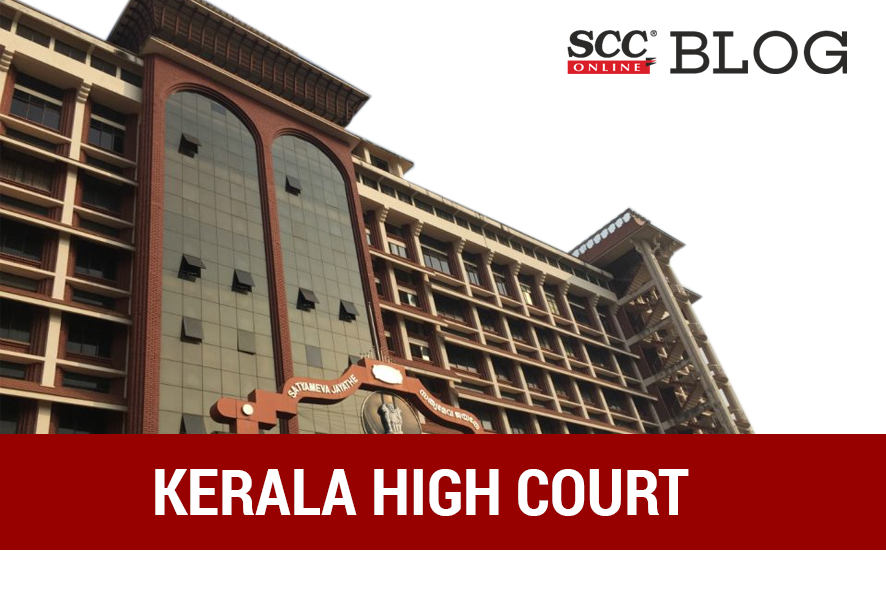Kerala High Court: In a Writ appeal challenging against from service under Kerala Education Act (‘the Act’) and the Kerala Education Rules (‘Rules’) on the ground of conviction in a criminal case, under Section 354(A)(1)(i) and (iii) of the Penal Code (‘IPC’) and Section 10 read with Section 9(f) and (m) and Section 12 read with Section 11(iii) of the Protection of Children from Sexual Offences Act (‘POCSO Act’), the Division Bench of P.B. Suresh Kumar and Sophy Thomas, JJ. dismissed the instant appeal reiterating that the authorities are not bound by the disciplinary procedure or restricted from taking action against conduct leading to conviction on criminal charges.
The appellant, a drawing teacher in an aided school, was dismissed from service for being convicted under Section 354(A)(1)(i) and (iii) of the Penal Code and Section 10 read with Section 9(f) and (m) and Section 12 read with Section 11(iii) of the Protection of Children from Sexual Offences Act (‘POCSO Act’) for showing to a girlchild, obscene pictures while conducting classes to undergo rigorous imprisonment for six years and fine, allegedly without following the procedures prescribed in Rules 65, 74 and 75. He challenged the dismissal through Writ Petition before the High Court on the ground that a teacher in an aided school governed by the Act and the Rules cannot be dismissed from service on conviction in a criminal case without following the said Rules. The Single Judge dismissed the same at the admission stage, relegating him to the alternative remedy available, which has been hereby appealed against.
The Court in the instant considered the question of “whether a teacher in an aided school governed by the Act and the Rules , can be dismissed from service on the basis of his conviction in a criminal case, without following the procedures prescribed under Rules 65, 74 and 75 of Chapter XIVA of Rules.”
The Court pointed towards the matter raised being a ‘pure question of law’ and viewed that “the Single Judge ought to have entertained the writ petition and decided the question not only for the purpose of giving a quietus to the dispute, but also for setting a precedent for others to follow in identical situations, as the authorities under the Act before whom the appellant could approach for resolving the dispute are not legally trained to decide such questions.” The Court relied on Madras Bar Assn. v. Union of India, (2014) 10 SCC 1 to reiterate that “judicially trained mind with the experience of deciding questions of law is a sine qua non for ensuring correctness in the decisions on pure questions of law.”
Since due process was not followed during the appellant’s dismissal, the Court scrutinized Rule 65 (prescribes penalties imposed on teachers of aided schools and provides that no punishment shall be imposed without giving the person affected an opportunity to show cause against the action proposed to be taken), Rule 74 (provides for dismissal of teachers of aided schools from service only with previous sanction of the Director), Rule 75 (prescribes detailed procedure for imposing major penalties, including penalty of dismissal from service). The Court also analysed Article 311(2) of Part XIV of the Constitution of India in this regard and also referred to Union of India v. Tulsiram Patel, (1985) 3 SCC 398 in this regard.
The Court relied on A. Satyanarayana v. S. Purushotham, (2008) 5 SCC 416 and clarified that “Although Article 311 does not directly apply to the appellant as he was neither a member in a civil service of the Union or an All-India Service or a civil service of a State or held a civil post under the Union or a State, according to us, the question raised needs to be answered keeping in mind the constitutional scheme, as it is now settled that the interpretation of statutory provisions shall always be in consonance with the constitutional scheme”.
The Court also pointed towards Rule 77A which starts with a non obstante clause to exclude the application of Rules 75, 76 and 77 for related matters, and clarifies that the authority may consider circumstances of the case and pass suitable orders without following Rule 75 in case of penalty imposed on a teacher on the ground of conduct leading to conviction on a criminal charge. Thus, the Court found the appellant’s contention of non-compliance of prescribed procedure vitiates dismissal without any substance and liable to be rejected.
The Court further analyzed Rule 74 and sub-rule (11) of Rule 75 and viewed that “Rule 74 is only a provision intended to indicate the particulars of the competent authorities from whom the previous sanction shall be obtained for different categories of teachers.” The Court further added that “our constitutional scheme is that there shall not be any kind of restriction on a disciplinary authority in the matter of taking appropriate action against a delinquent employee on the ground of conduct which had led to his conviction on a criminal charge.”
After scrutinizing Section 12 of the Act, the Court rejected contention for non-compliance of Rule 75 and said that the appellant cannot be heard to contend that previous sanction of the competent authority is required for dismissing a teacher from service on the basis of his conviction in a criminal case. It further added that Rule 65 also does not apply to cases punishing a teacher after conviction on a criminal charge.
The Court, therefore, dismissed the instant appeal.
[Mahesh Thampi v. Deputy Director of Education, 2023 SCC OnLine Ker 2176, Judgment dated 10-4-2023]
Judgment by: Justice P.B. Suresh Kumar
Advocates who appeared in this case :
For Appellant: Advocate C.S. Manilal, Advocate S. Nidheesh, Advocate Kunjappeasow Rainge;
For Respondents: Senior Government Pleader A.J. Varghese.







